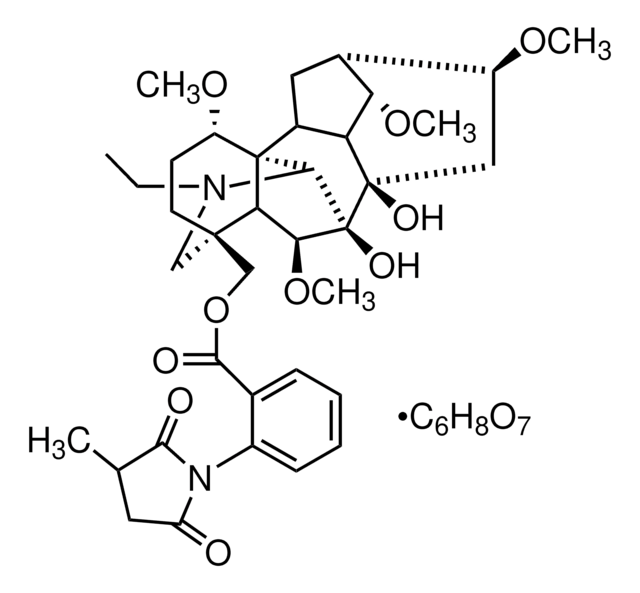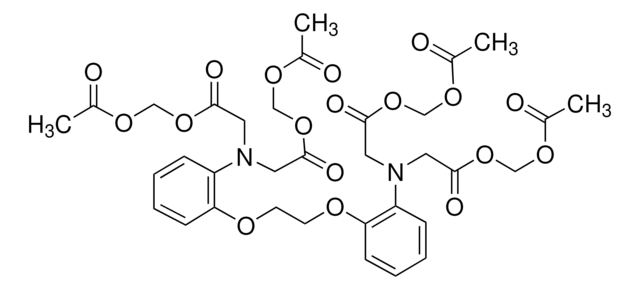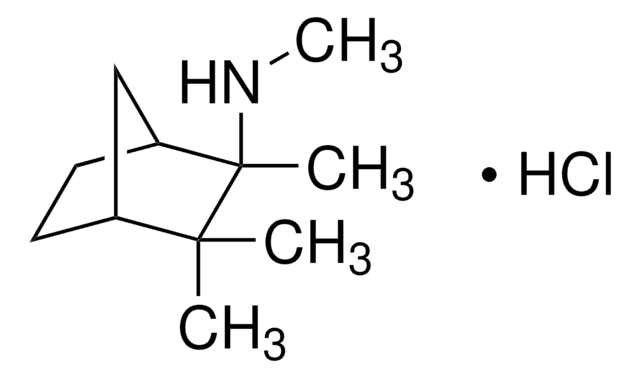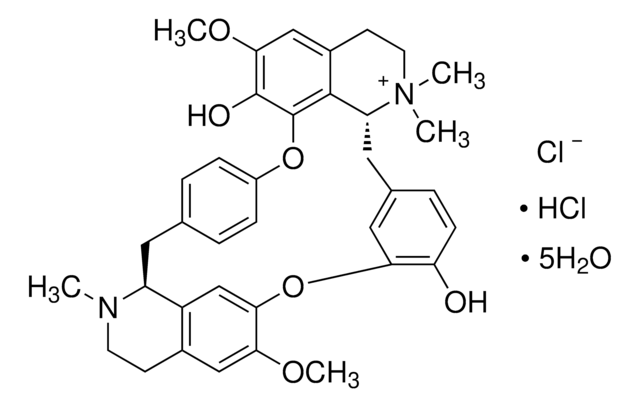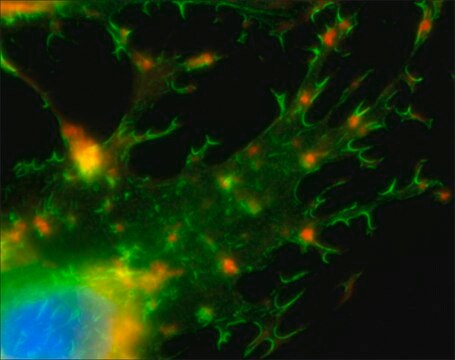203980
α-Bungarotoxin
from Bungarus multicinctus, No contaminants by IEF, lyophilized solid, irreversible binder to motor end-plate acetylcholine receptor, Calbiochem®
Sinónimos:
α-Bungarotoxin, Bungarus multicinctus
About This Item
Productos recomendados
Nombre del producto
α-Bungarotoxin, Bungarus multicinctus, Blocks neuromuscular transmission by irreversible binding to motor end-plate acetylcholine receptor (Kd = 1 pM to 1 nM) but does not depress acetylcholine release from motor nerve endings.
Quality Level
form
lyophilized solid
manufacturer/tradename
Calbiochem®
storage condition
OK to freeze
solubility
PBS: soluble
water: soluble
shipped in
ambient
storage temp.
−20°C
General description
Biochem/physiol Actions
Motor end-plate acetylcholine receptor
Warning
Sequence
Physical form
Reconstitution
Analysis Note
Other Notes
Zhang, Z.W., et al. 1994. Neuron 12, 167.
Bambrick, L.L., and Gordon, T. 1992. J. Physiol.449, 479.
Lin, S.R., and Chang, C.C. 1992. Biochim. Biophys. Acta1159, 255.
Motomura, M., et al. 1992. Neurosci. Lett.143, 139.
Sorenson, E.M., and Chiappinelli, V.A. 1992. J. Comp. Neurol.323, 1.
Ruan, K.H., et al. 1990. Proc. Natl. Acad. Sci. USA87, 6156.
Legal Information
Storage Class
11 - Combustible Solids
wgk_germany
WGK 3
flash_point_f
Not applicable
flash_point_c
Not applicable
Certificados de análisis (COA)
Busque Certificados de análisis (COA) introduciendo el número de lote del producto. Los números de lote se encuentran en la etiqueta del producto después de las palabras «Lot» o «Batch»
¿Ya tiene este producto?
Encuentre la documentación para los productos que ha comprado recientemente en la Biblioteca de documentos.
Nuestro equipo de científicos tiene experiencia en todas las áreas de investigación: Ciencias de la vida, Ciencia de los materiales, Síntesis química, Cromatografía, Analítica y muchas otras.
Póngase en contacto con el Servicio técnico